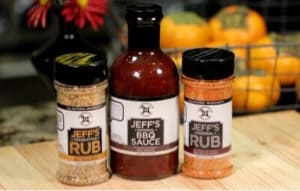The subject always comes up, I guess, because there is so much conflicting information out there. After doing all the research and with the help from folks here, I'm going to be making my first batch of jerky in another week or so WITH CURE. There is no way I would make it without after all I've read, but to each his own I guess.
Little Chief, thanks for the recipe!!! I really appreciate it and looks like you got some good jerky out of it. And, Desertlites thanks for the info on how much cure you use. DDave, thanks for posting that thread...it's very informative.
I didn't mean to start a huge debate, but I was really confused by all the conflicting info out there. Anyway, nothing wrong with a healthy debate I guess.
Little Chief, thanks for the recipe!!! I really appreciate it and looks like you got some good jerky out of it. And, Desertlites thanks for the info on how much cure you use. DDave, thanks for posting that thread...it's very informative.
I didn't mean to start a huge debate, but I was really confused by all the conflicting info out there. Anyway, nothing wrong with a healthy debate I guess.





